Justice
Trudeau claims under oath that Jordan Peterson, Tucker Carlson are funded by Russia
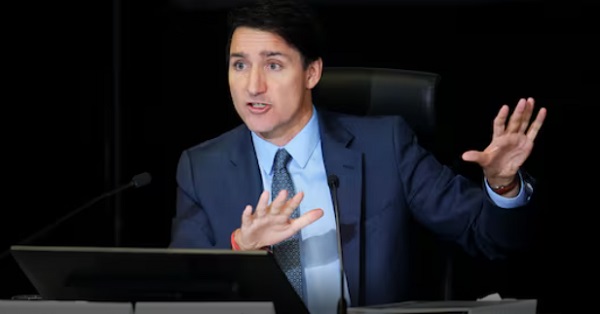
From LifeSiteNews
“Hey Russians! Where the hell is my money?!”
Prime Minister Justin Trudeau claimed U.S media personality Tucker Carlson and popular Canadian psychologist Dr. Jordan Peterson are being funded by a Russian-state-funded news site, blaming the foreign nation for “amplifying the chaos” surrounding the 2022 Freedom Convoy protests.
Trudeau made the claim Wednesday during under oath testimony at the Foreign Interference Commission, after he was asked about Russia’s alleged role in the Freedom Convoy.
Trudeau said, while speaking in French, that he “certainly agrees that Russia amplified the chaos, disagreements and divisions in Canada surrounding the convoy.”
Trudeau added that “Russian activities related to propaganda, disinformation and misinformation are quite constant in our social media and within Canadian democracy.” He then claimed that it was “Russian propaganda” that “greatly amplified” opposition to the COVID shots which was spread by “right-wing media.”
He then claimed that Russian state-funded broadcaster Russia Today (RT) was funding Carlson and Peterson, saying, “We saw many of these channels shift to pro-Putin propaganda.”
“We recently saw that RT is funding right-wing bloggers and YouTube personalities in North America,” said Trudeau, adding, “including well-known names like Jordan Peterson or Tucker Carlson to amplify messages that destabilize democracies.”
Trudeau’s comments were immediately blasted by Peterson.
“Hey Russians! Where the hell is my money?!” he wrote on X Wednesday about Trudeau’s accusatory comments.
Hey Russians!
Where the hell is my money?!@justintrudeau strikes again
Whiffing at a foul ballhttps://t.co/cQgdC2Cx2H— Dr Jordan B Peterson (@jordanbpeterson) October 16, 2024
Peterson then joked that a bunch of Russian “Rubles” are stuffed in his bed.
Peterson’s daughter also took to social media, suggesting that Trudeau’s comments might warrant a lawsuit from her father.
“This might be worth suing about,” wrote Mikhaila Peterson on X.
This might be worth suing about. As much fun as lawsuits are, this seems like an easy one.
— Mikhaila Peterson (@MikhailaFuller) October 16, 2024
“As much fun as lawsuits are, this seems like an easy one,” she added.
As of press time, Carlson, who has been an open critic of the prime minister, has yet to issue a statement in response to Trudeau’s allegations.
Currently, the Commission on Foreign Interference, which is largely focused on Chinese meddling in Canadian politics, is taking place in Ottawa, headed by Justice Marie-Josée Hogue. She had earlier said she and her lawyers will remain “impartial” and will not be influenced by politics. In January, Hogue said that she would “uncover the truth whatever it may be.”
The commission was struck after Trudeau’s special rapporteur, former Governor General David Johnston, failed in an investigation into CCP allegations last year after much delay. That inquiry was not done in public and was headed by Johnston, who is a “family friend” of Trudeau.
Johnston quit as “special rapporteur” after a public outcry following his conclusion that there should not be a public inquiry into the matter. Conservative MPs demanded Johnston be replaced over his ties to both China and the Trudeau family.
The potential meddling in Canada’s elections by agents of the CCP has many Canadians worried as well.
As for Trudeau, he has praised China for its “basic dictatorship” and has labeled the authoritarian nation as his favorite country other than his own.
Peterson for his part has been critical of Trudeau and his Liberal government for years.
Business
Judges are Remaking Constitutional Law, Not Applying it – and Canadians’ Property Rights are Part of the Collateral Damage
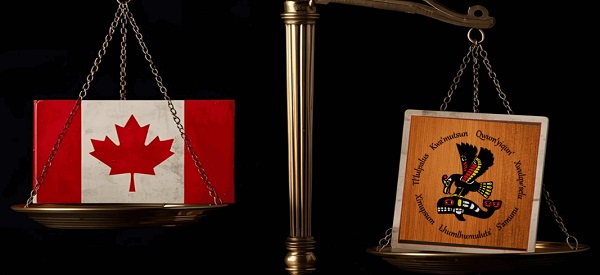
By Peter Best
The worst thing that can happen to a property owner isn’t a flood or a leaky foundation. It’s learning that you don’t own your property – that an Aboriginal band does. This summer’s Cowichan Tribes v. Canada decision presented property owners in Richmond B.C. with exactly that horrible reality, awarding Aboriginal
title to numerous properties, private and governmental, situated within a large portion of Richmond’s Fraser River riverfront area, to Vancouver Island’s
Cowichan Tribes. For more than 150 years, these properties had been owned privately or by the government. The Cowichan Tribes had never permanently lived
there.
But B.C. Supreme Court Justice Barbara Young ruled that because the lands had never been formally surrendered by the Cowichans to the Crown by treaty, (there
were no land-surrender treaties for most of B.C.), the first Crown grants to the first settlers were in effect null and void and thus all subsequent transfers down
the chain of title to the present owners were defective and invalid.
The court ordered negotiations to “reconcile” Cowichan Aboriginal title with the interests of the current owners and governments. The estimated value of the
property and government infrastructure at stake is $100 billion.
This ruling, together with previous Supreme Court of Canada rulings in favour of the concept of Aboriginal title, vapourizes more than 150 years of legitimate
ownership and more broadly, threatens every land title in most of the rest of B.C. and in any other area in Canada not subject to a clear Aboriginal land surrender
treaty.
Behind this decision lies a revolution – one being waged not in the streets but in the courts.
In recent years Canadian judges, inspired and led by the Supreme Court of Canada, have become increasingly activist in favour of Aboriginal rights, in effect
unilaterally amending our constitutional order, without public or legislative input, to invent the “consult and accommodate” obligation, decree Aboriginal title and grant Canadian Aboriginal rights to American Indians. No consideration of the separation of powers doctrine or the national interest has ever been evidenced by
the Court in this regard.
Following the Supreme Court’s lead, Canadian judges have increasingly embraced the rhetoric of Aboriginal activism over restrained, neutral language, thus
sacrificing their need to appear to be impartial at all times.
In the Cowichan case the judge refused to use the constitutional and statutory term “Indian,” calling it harmful, thereby substituting her discretion for that of our
legislatures. She thanked Aboriginal witnesses with the word “Huychq’u”, which she omitted to translate for the benefit of others reading her decision. She didn’t
thank any Crown witnesses.
What seems like courtesy in in fact part of a larger pattern: judges in Aboriginal rights cases appearing to adopt the idiom, symbolism and worldview of the
Aboriginal litigant. From eagle staffs in the courtroom, to required participation in sweat lodge ceremonies, as in the Supreme Court-approved Restoule decision,
Canada’s justice system has drifted from impartial adjudication toward the appearance of ritualized, Aboriginal-cause solidarity.
The pivot began with the Supreme Court’s 1997 Delgamuukw v. British Columbia decision, which first accepted Aboriginal “oral tradition” hearsay evidence. Chief
Justice Lamer candidly asked in effect, “How can Aboriginals otherwise prove their case?” And with that question centuries of evidentiary safeguards intended
to ensure reliability vanished.
In Cowichan Justice Young acknowledged that oral tradition hearsay can be “subjective” and is often “not focused on establishing objective truth”, yet she
based much of her ruling on precisely such “evidence”.
The result: inherently unreliable hearsay elevated to gospel, speculation hardened into Aboriginal title, catastrophe caused to Richmond private and government property owners, the entire land titles systems of Canadian non-treaty areas undermined, and Crown sovereignty, the fount and source of all real property rights generally, further undermined.
Peter Best is a retired lawyer living in Sudbury, Ontario.
The original, full-length version of this article was recently published in C2C Journal.
Alberta
No Permission Required: Alberta Will Protect Its Daughters
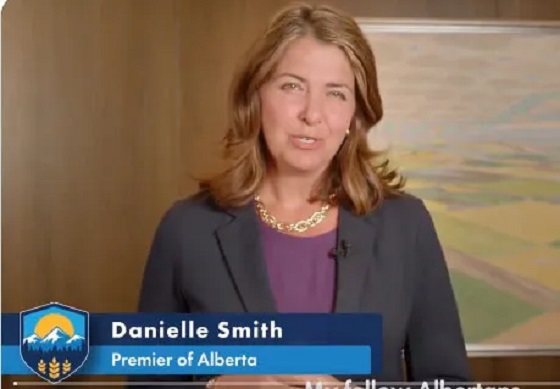
Section 33 Is a Legitimate Democratic Instrument
Tell everyone. There is no Charter right for a biological male to compete against females in women’s sports. Nor is there a constitutional right for children to be maimed and rendered sterile in service to self-proclaimed identities. And there is certainly no excuse for a government in Ottawa to interfere with provinces’ ability to defend women and girls from the fallout of sexual fetishism dressed in federalist drags.
Yet here we are.
Albertans are being invited to ask an important question. When rights collide, should we trust the flawed judgment of elected officials who face the people every few years, or surrender that authority to similarly flawed judges selected in near secrecy, immune to removal, and uninterested in the lived realities of the citizens they affect?
Section 33 of the Charter—the “notwithstanding clause”—exists for precisely this purpose. It was never a loophole. It was a constitutional safeguard demanded by Premiers like Alberta’s Peter Lougheed and Saskatchewan’s Allan Blakeney. It was their condition for agreeing to the Trudeau Charter in 1982, a shield for legislatures to retain sovereignty in cases where Ottawa-appointed, unelected courts would push too far into political life. It was a tool to defend provincial uniqueness against Ottawa’s homogenizing power.
Blakeney explained it plainly. Where judicial rulings lead to outcomes that might cause undue harm, for example, legislatures must retain the right to legislate, even if a court believes a Charter right has been breached. It was an elegant way to deal with the inevitable tension between rights adjudicated by judges and those protected by governments chosen by the people. It was a way to guarantee democracy over legal technocracy. The hysterical NDP machine will have people believe it is also the legislation of cruelty.

Section 33 is a temporary mechanism—suitable for five years, renewable only through re-legislation. Whatever the progressives say, it does not override or erase any rights. It cannot be used in secret, and any government that invokes it must defend its choice publicly. That is democratic accountability. The people can debate it (and we now where the contemporary left stands on debating), throw the government out, or demand that the law be changed, if they so choose.
This safeguard is now essential. Alberta is acting to protect the integrity of women’s sports and spaces. Who would be against protecting their daughters? Girls have lost competitions, lost scholarships, and in some cases been physically injured competing against males who claim to be female. These are not hypotheticals. They are real, measurable harms—harms progressive politicians and the courts are at times unwilling to recognize. Alberta’s proposed protections have drawn fierce opposition from progressive ideological activists and their allies in the press and the federal parliament, who now claim that such laws are contrary to the Charter. They seek to keep imposing without open debate the fiction that there is a Charter right for a biological male to compete against females in women’s sports.
There is no such right, and it doesn’t exist in the Charter. The Charter was not drafted to validate identity fantasies. It was not written to erase biological sex or enshrine the right of middle-aged men to force immigrant women to handle their genitals. It was not intended to give minors access to irreversible surgeries without the knowledge or consent of their parents. These things are being “read into” the Charter by tribunals and activist judges trained in Laurentian law schools with no democratic mandate, often under pressure from a woke federal government happy to let the courts advance policies it wants but is afraid to pass through Parliament.
Naheed Nenshi has made it clear where he stands. He bluntly opposes the use of Section 33 to protect Alberta women and girls. His allegiance is to the same cultural current that waddles through Ottawa. He speaks the language of progress but misses the point entirely. This isn’t about political posturing. It is about protecting girls and women from being injured, marginalized, and erased to satisfy the ideological demands of his political base.
It is about affirming the constitutional prerogative of Alberta’s legislature to protect its jurisdictional sphere. This is about facing anti-scientific postures with courage and preserving truth: men aren’t women, no matter how much ideological poultry progressive voodoo priests sacrifice to affirm it.
Ottawa’s interest in neutering Section 33 is not born of a deep commitment to human rights. It is a power play. The Trudeau-era delusional policies and its Carney-extended government see in Section 33 an obstacle to the court-driven social revolution it has vigorously encouraged. It wants provinces disarmed. Not through constitutional amendment, which would require tough negotiating, broad agreement and transparency, but through attrition—by shaming any use of the clause and suggesting that invoking it is inherently illegitimate. But that federal poodle won’t hunt in Alberta.
Ottawa already has the power to disallow provincial legislation outright under Section 90 of the BNA Act, 1867. That power—known as disallowance—allows the federal cabinet to kill any provincial law within a year of its passage. It has not been used since 1943, not because it is illegal, but because it is politically toxic. If Ottawa were to disallow an Alberta or Saskatchewan law protecting girls’ sports or parental rights, the backlash would be immediate and overwhelming. Progressives prefer pushing their ideological agendas in the dark, through political smoke curtains, behind close doors.
The federal government would rather pretend it lacks power while trying to strip away the strongest tool provinces have to protect their constitutional space. Section 33 is a scalpel compared to Ottawa’s sledgehammer, but it is a scalpel that Ottawa doesn’t want the provinces to use because it limits the power of the judges they appoint.
And let us not pretend this kind of judicial overreach is limited to social policy. Just a few years ago, the Supreme Court had the opportunity to strike down Canada’s tangle of interprovincial trade barriers in the Comeau case (2018). The question was straightforward: does Section 121 of the Constitution, which says goods “shall be admitted free” between provinces, actually mean what it says?
The Court answered no. It chose legal technicalities over the clear, economic intent of the BNA Act. In doing so, it upheld a regime of trade barriers that make Canada’s internal economy more balkanized. Donald Trump’s tariffs have nothing on the now court-preserved domestic trade barriers.
While the courts did not impose the regime of inter provincial blockages, it was the last to endorse it, weakening the country. Canadians cannot freely ship beer or wine across provincial lines. Businesses face duplicated regulations and supply chains carved up by provincial restrictions. The result is a sluggish, over-regulated economy that punishes ordinary citizens while rewarding monopolies and gatekeepers.
The Comeau decision was a betrayal of Confederation. It was also a reminder of the deeper problem: judges, however skilled, are not elected. That doesn’t make them bad people, but they are not accountable. The current Chief Justice, who condemned the truckers’ protest knowing legal cases would be coming active challenging the COVID lockdowns, openly advocated for stronger federal power. He is not neutral. And even if he were, he remains unaccountable to the people of Alberta. His political judgment carries no democratic legitimacy, yet it shapes the rules under which we are expected to live.
This is why Section 33 must be preserved—and used. But whether or not it is used legitimately in Alberta, it is for Albertans to determine. Not Ottawa. The threat isn’t coming from Alberta’s legislature—it’s coming from courts and bureaucrats choosing to advance male fetish desire as sacred while erasing female safety.
Premier Danielle Smith understands this. So does Premier Scott Moe. That is not judicial defiance. That is democratic responsibility. When Ottawa and the NDP opposition in both provinces seek to override parental rights, deny biology, and impose ideology on children, women, and families, it is the perfect time for legislatures to act. And if not legislatures, then who?
Albertans should not have to ask permission from Ottawa to protect their daughters. They should not have to wait years for a judge’s approval to define women’s places and spaces. They should not be ruled by edicts from individuals who have never faced a voter in their lives.
Section 33 is a lawful democratic instrument. It exists to ensure that provinces do not lose control over essential provincial matters. Alberta is using it for precisely the reason it was designed—to uphold the will of its people in the face of potential judicial activism that favours anti-scientific ideology above reality.
No permission is required. Alberta will protect its daughters.
Haultain Research is a reader-supported publication.
To receive new posts and support our work, consider becoming a free or paid subscriber.
-

 Energy2 days ago
Energy2 days agoCAPP calls on federal government to reset energy policy before it’s too late
-
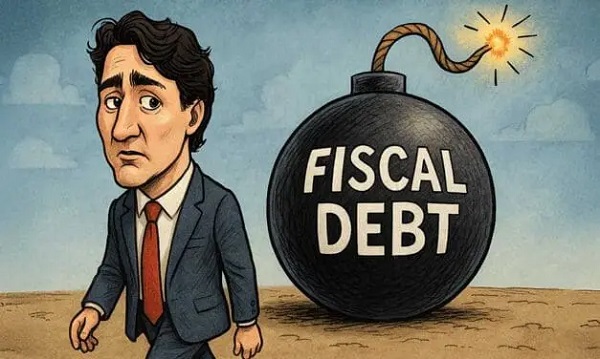
 Business2 days ago
Business2 days agoCanada is still paying the price for Trudeau’s fiscal delusions
-

 Business2 days ago
Business2 days agoTrump Raises US Tariffs on Canadian Products by 10% after Doug Ford’s $75,000,000 Ad Campaign
-

 Business2 days ago
Business2 days agoTrans Mountain executive says it’s time to fix the system, expand access, and think like a nation builder
-

 Media1 day ago
Media1 day agoCarney speech highlights how easily newsrooms are played by politicians announcing the same things over and over again
-

 Health1 day ago
Health1 day agoDMSO Heals the Eyes and Transforms Ophthalmology
-

 Opinion1 day ago
Opinion1 day agoCarry-On Carney And The Trials Of Brian Peckford
-
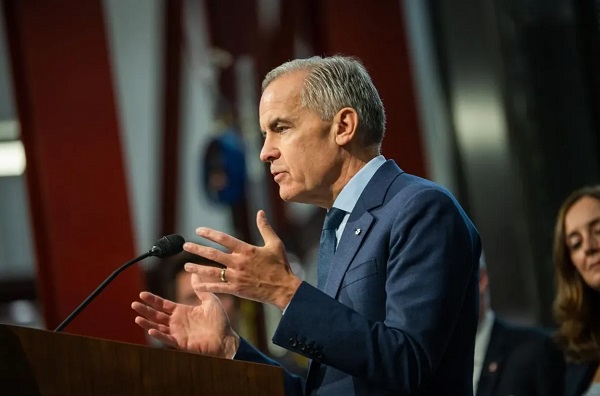
 Opinion1 day ago
Opinion1 day agoA Nation of Announcements: Canada’s Government of Empty Promises












